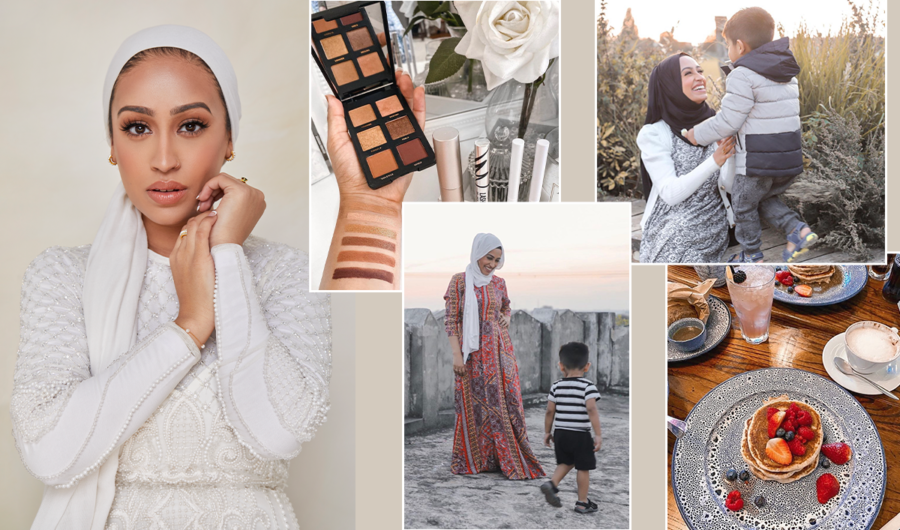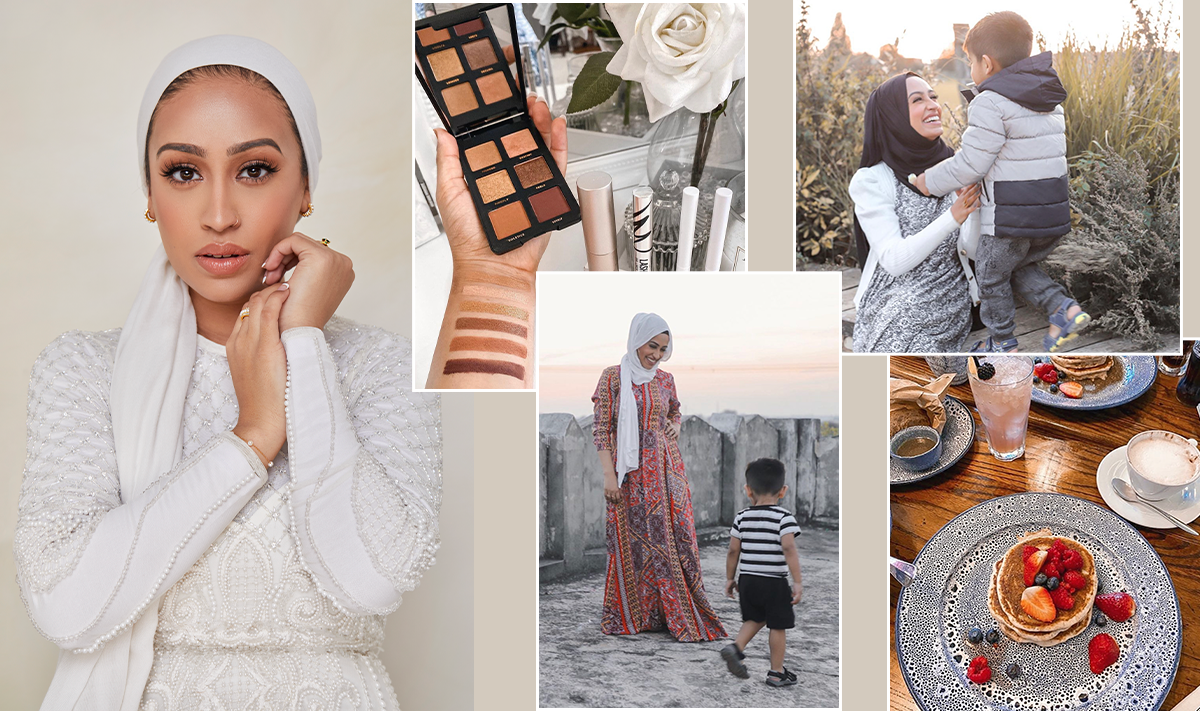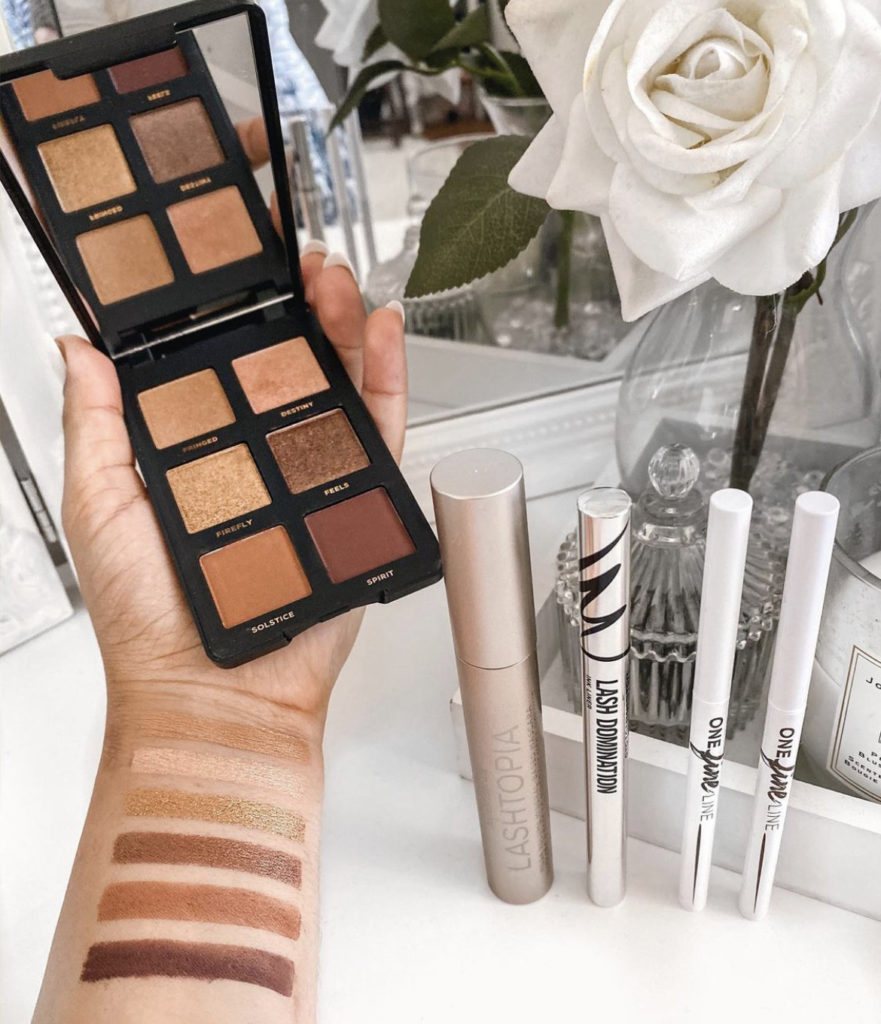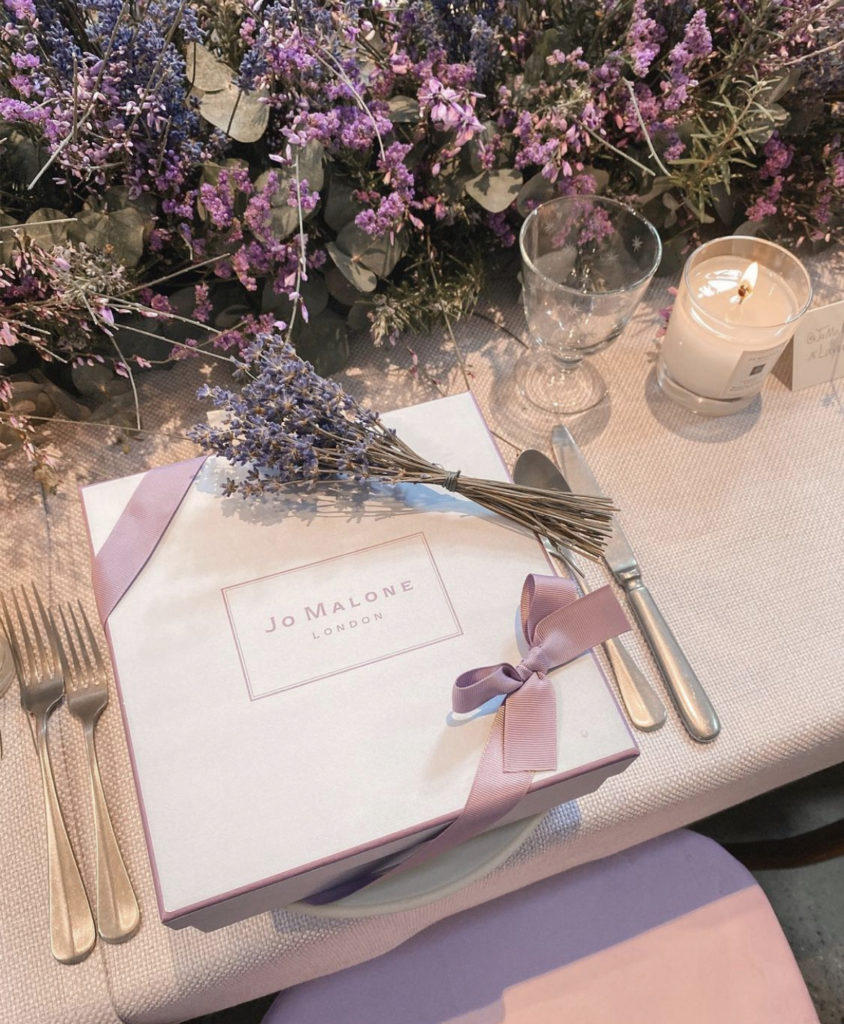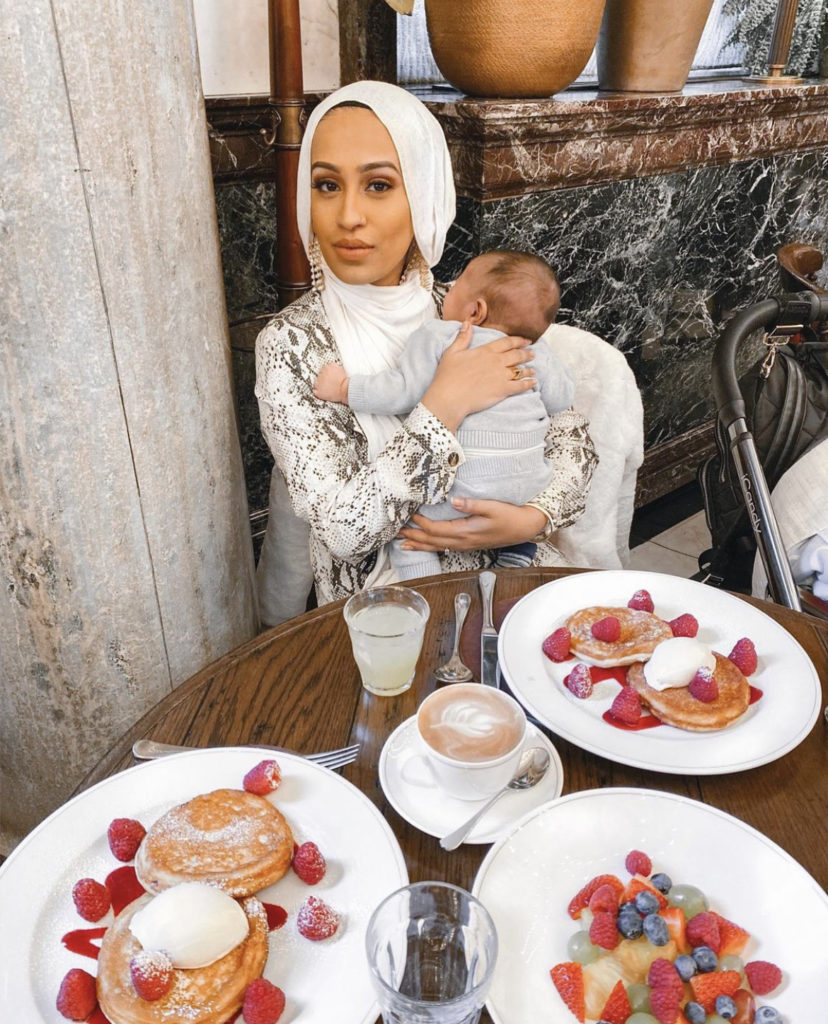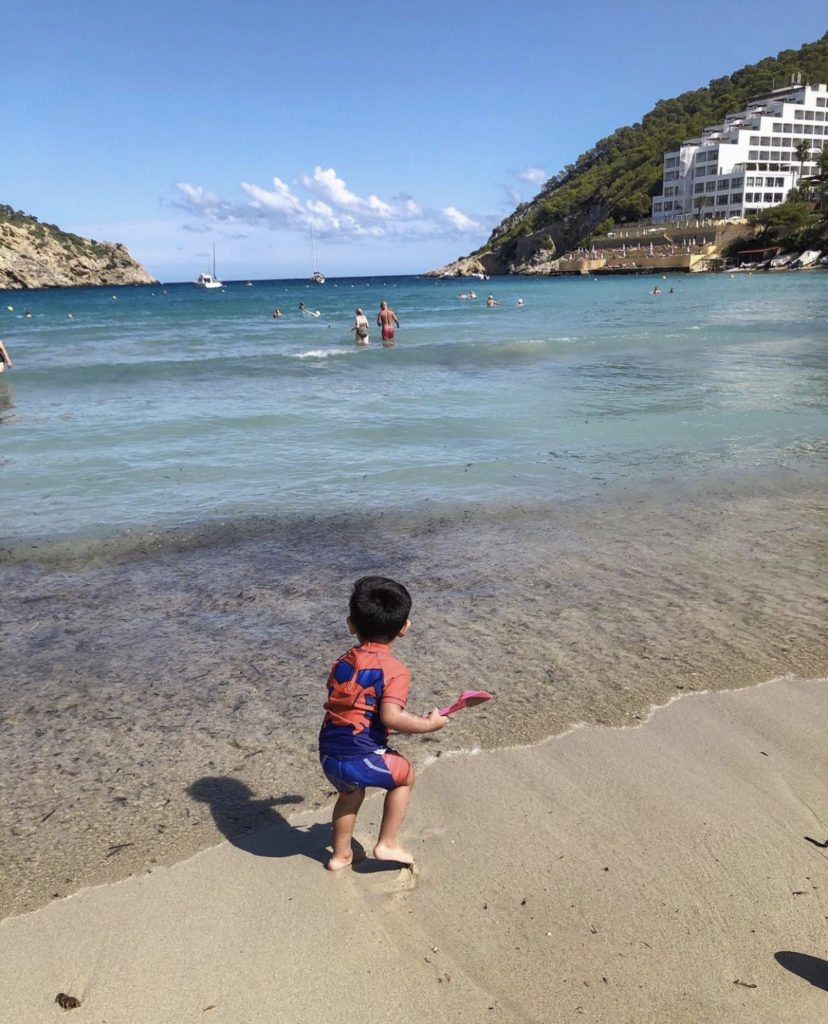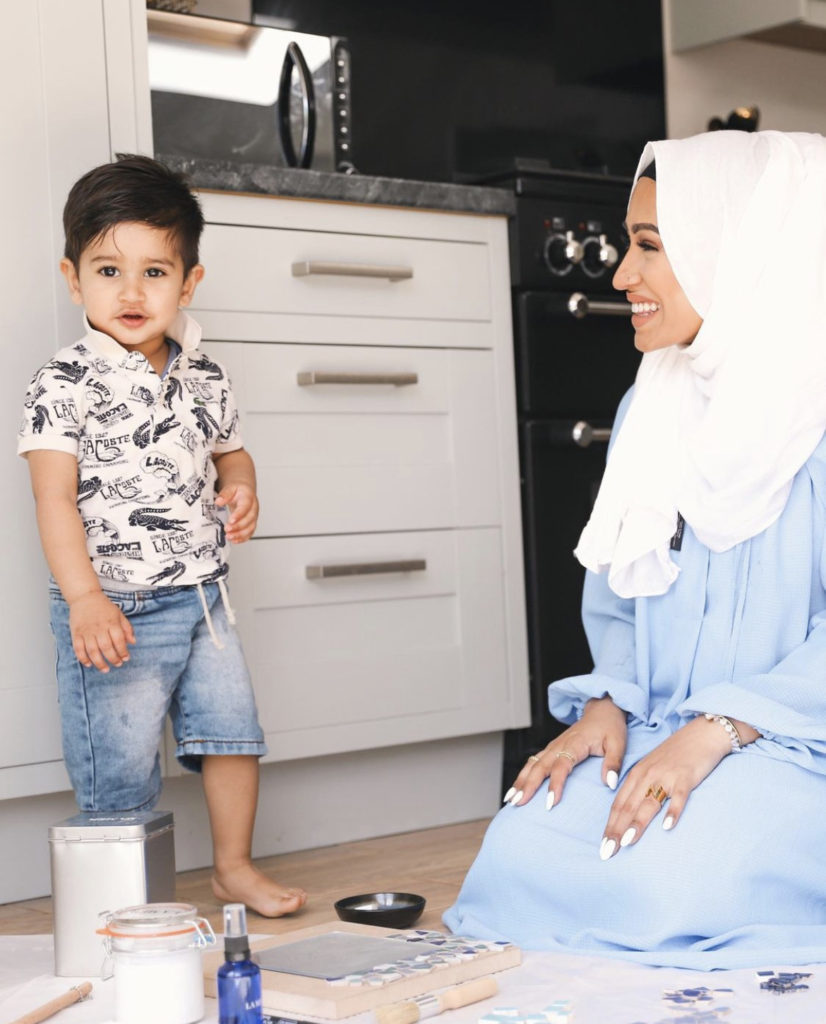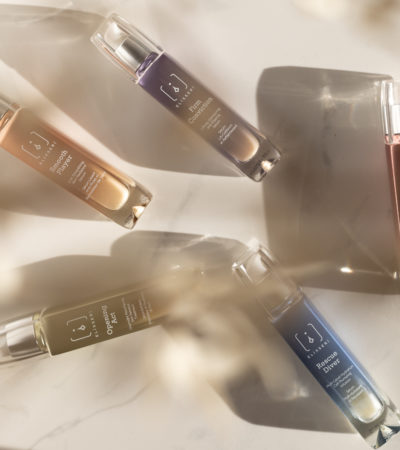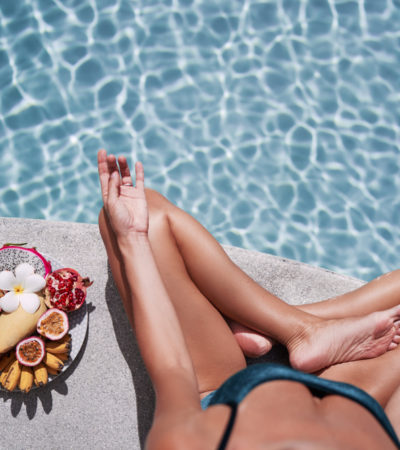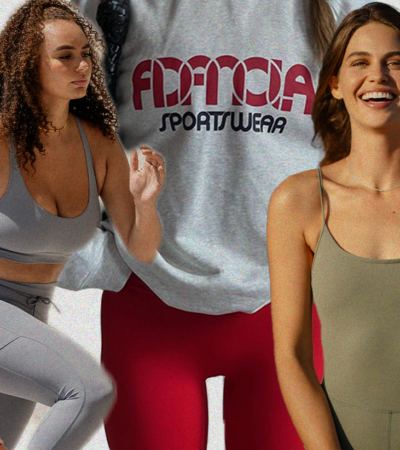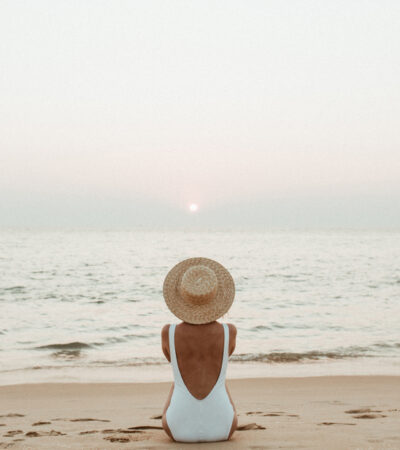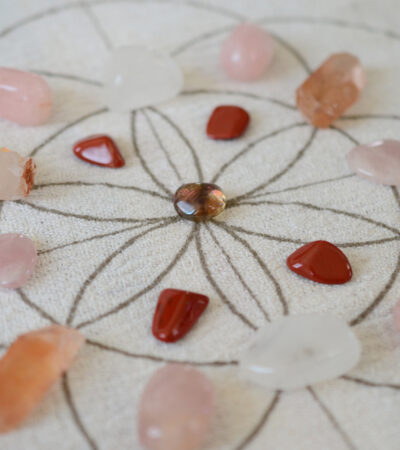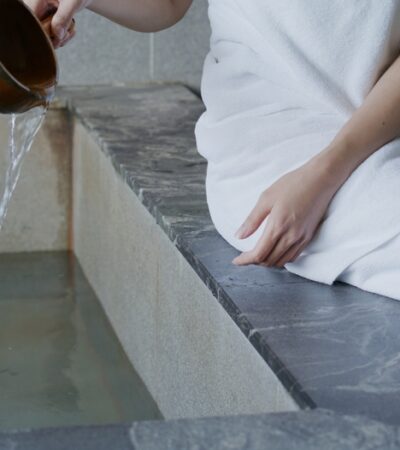Sebina Hussain is one of Instagram’s biggest names in lifestyle and beauty content. We caught up with her to discuss how she’s starting important conversations about beauty inclusivity, learning to ask for help when it comes to the parenthood juggle and what life lessons she wants to pass on to her 3 gorgeous sons.
Talk to us about your Instagram… How did your journey begin and where did your passion for beauty come from?
It was purely accidental, and I made an account the same way everyone else did, to share pictures with family and friends – this was in the day before content creation was even a thing, let alone an actual career.
Within a few weeks, I had over a thousand followers; women online were interested in my outfits and the way I styled my hijab – they were not used to seeing women in a headscarf on public platforms, and there were very few Muslim women back then sharing their outfits or lives, so I grew an audience quiet quickly. As well as outfits, I would often share my beauty hauls and opinions of products – I have loved beauty for as long as I can remember.
I grew up watching Bollywood movies where the actresses were always immaculately made up (even if they were just waking up in the morning or getting out of the shower!), and I remember being obsessed with my mum’s nail polish and lipsticks from a very young age. My mother wasn’t hugely into beauty, but she had a small collection of beautiful brown lipsticks, and I would always see her oil her hair with jasmine oil, apply kohl into her eyes or prep her skin with a turmeric mask on special occasions. Again, those early memories really solidified the importance of looking presentable and my passion for all things make-up, skincare and fragrance!
Growing up did you see yourself represented in the beauty world as a WOC?
Sadly, never. Many of the brands I am obsessed with now were never even on my radar growing up – the advertising was always middle-aged white women (when you’re 13, anyone over the age of 20 seems middle-aged!). I remember walking past so many counters thinking they won’t have anything for me. Even the brands that I loved or used, like MAC, Bobbi Brown or Nars, were from recommendations by MUAs within the community who would suggest them because they had a wider colour offering.
From your point of view, how has the representation of WOC changed over time in the beauty industry?
We’ve made a lot of progress in the last decade, and in the last 2-3 years that progress has really been accelerated. When I first started being approached by beauty brands, it was obvious that a lot of them were just trying to tick boxes – I think the opinion was that if we have a brown woman she would appeal to all brown women. There wasn’t any recognition or understanding of the nuances of different types of women; brands were lazy and often fearful of saying or doing the wrong thing, which resulted in sloppy representation.
I think the industry as a whole understands the importance of authentic representation; brands are taking that step to look for content creators that are on-brand for them. They are working on a more collaborative nature and are open to learning and understanding. Many still use WOC as a tick box, but it is becoming evident to consumers when representation isn’t authentic, so it’s more detrimental for them in the long run.
Have you found any holy grail beauty/skincare essentials that you’d take to a desert island in a heartbeat?
[At the time of interview] It’s Ramadan at the moment, so my skincare and beauty have been really scraped back to its basics, so for a desert island and in the heat, I think a lash curler is a must-have, I use the Shiseido one, and I love how lifted lashes instantly make me look more awake.
For skincare, the Clinique Moisture Surge is a holy grail, especially for dehydrated skin. I also love the Ole Henriksen Vitamin C for an instant glow and the Cle De Pea Precious Gold Vitality Mask and Cle De Pea The Serum to get my skin looking its absolute best. I’m not the best at remembering SPF because many have left me looking grey and ashy in the past, but it is so essential for everyone, and I love the Kiehl’s Ultra Light UV defense.
What would you like to see from the beauty world in the future to make it more inclusive for everyone?
I want more brands to work collaboratively, to educate themselves on WOC and their different backgrounds and cultures – the easiest way to do this is just to have a conversation, but we are all so focused on being politically correct in this country that those awkward conversations can be difficult sometimes. But those conversations are fundamental for change and inclusivity.
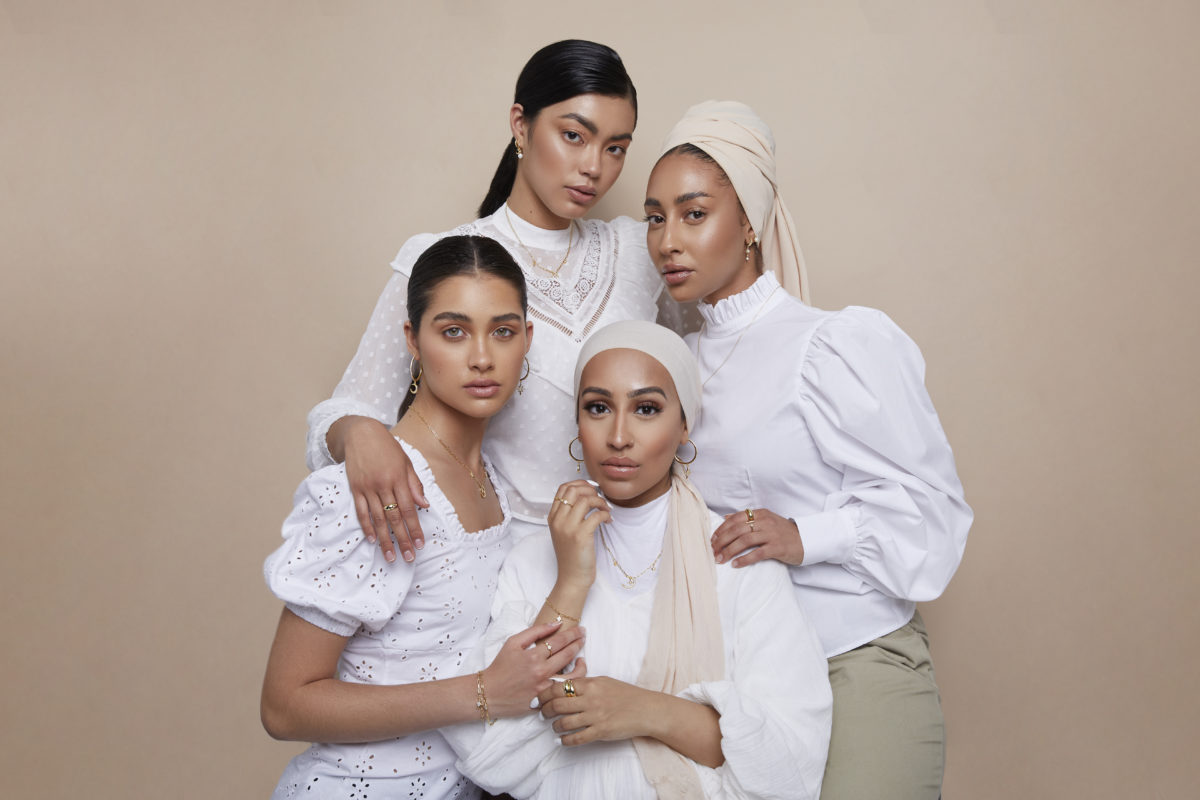
What have you learnt from starting your brand, Irum Atlas, about being a woman in business?
I found out I was pregnant with baby number 3 a week before the launch of Irum Atlas – so I guess the first thing I learned was that things never go to plan! I am hugely impatient, so I have had to learn to slow down, make decisions more carefully and understand that things don’t happen overnight and that not everyone works as fast as I would like them to! Launching a brand during a global pandemic was a risky decision, but I’ve learnt that in business, you have to take risks. Some will pay off, and others won’t, but if you let fear get in the way, you will never learn. Sometimes our greatest achievements and lessons come from making mistakes, and when you start something new, there will always be a few mistakes along the way!
What tools and strategies do you utilize to manage the juggle of motherhood and running your business?
Asking for help – I am a total control freak and always want to do everything by myself, but realistically it’s just not possible. I have an excellent team who work behind the scenes managing the admin for my social media. I have help from my family with my children. I have help around the house – and I am super blessed that I get to work with my husband, we have been creating content together since I started my Instagram so having someone who understands my vision and knows how to execute has been vital in getting things done.
I also love writing lists, and most days start with a list of things that are essential, things that I’d like to get done and things that can wait. Once a week, I sit down to plan the week ahead, splitting my to-do list into Instagram, Irum Atlas, kids and home to make juggling it all a bit easier. I am a visual person, so having everything written down really helps me feel like I can manage it all. Although some days I spend more time writing lists than actually doing what’s on them!
How do you carve out time in your week for self-care or “you-time”?
I don’t! I always feel too guilty about taking “me time”, and I find it hard to relax. I am very blessed that I get to do something I genuinely enjoy – for example this Easter weekend (April, 2022) I was up to date with all my work, the sun was out and I had planned to completely switch off.
[At the time of interview] It’s Ramadan, so after closing our fast at 4am, my husband and I decided to make the most of the early morning golden hour and shoot some content – I managed to get more done that weekend than I have in the last few months! We were just in our element, and when you get to something you love with someone you love, that alone is “you-time”.
Being a mother of three boys, what’s one bit of advice or nugget of wisdom you would like to pass on to them?
I’ve spent the best part of the past 5 years either being pregnant or breastfeeding! The best advice I can give them is to do what makes them happy – as a 3rd generation British Pakistani, I have always felt immense pressure to say yes to opportunities and overwork myself. I know how fortunate I am and what my parents and grandparents sacrificed for me to have a better life. But I don’t want my sons to feel that pressure or guilt, I don’t want them to define their worth on their academic qualifications or career choices – I want to teach them that life is precious and beautiful, and fleeting, and that they should learn how to be happy and be their most authentic selves and that, that will be enough for them.
What has been the most defining moment in your career as a beauty content creator?
In 2018 I made it to Marie Claire magazine’s Power Influencers list and that was huge for me – not just to see myself in a magazine I read growing up but to make it on a list amongst so many other women I had followed and admired from afar was huge for me. That was the same year I consulted for Clinique and hosted my very first Eid event with them, something that no other brand was doing at that time, and I think that was monumental – knowing the impact that I could make in this space and industry. But there are also so many other moments that are growing up as a brown girl from a working-class background I could never have imagined and am eternally grateful for – being flown to LA with Shiseido to dine with celebrity make-up artist Patrick Ta, getting to shoot with Creme De La Mer and having my make-up done by celebrity MUA Mary Phillips, consulting for huge brands like Estee Lauder Companies.
What are you excited about for the future?
I am just excited for a beautiful summer, the last 2 years have been very tough. I think lockdown triggered anxiety and MH issues in a lot of people, and I have been very vocal in talking about that, so I am just excited for some sunshine, picnics in the park, walks along the river, lunches and dinners with family and friends. Just feeling the light breeze and summer sun on my skin without that constant worrying feeling in my belly!
I have exciting plans incoming both in terms of social media and Irum Atlas, but I am re-learning to enjoy the process and hard work and not just be focused on the results and the outcome! I have a few other business ideas up my sleeve, too – so watch this space!
IG: www.instagram.com/sebinaah/?hl=en
Website: www.sebinaah.com/

